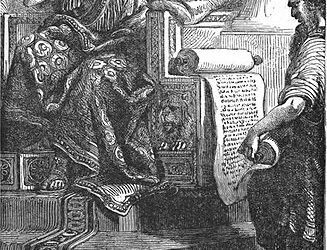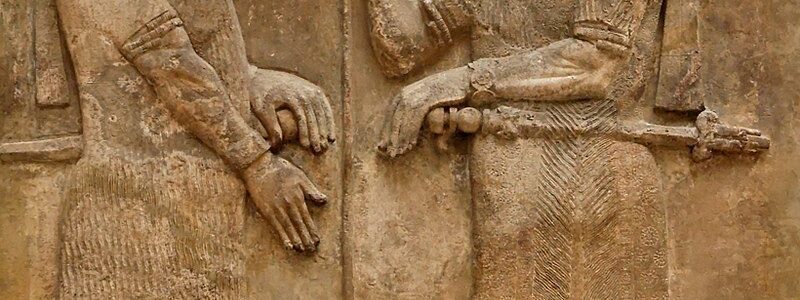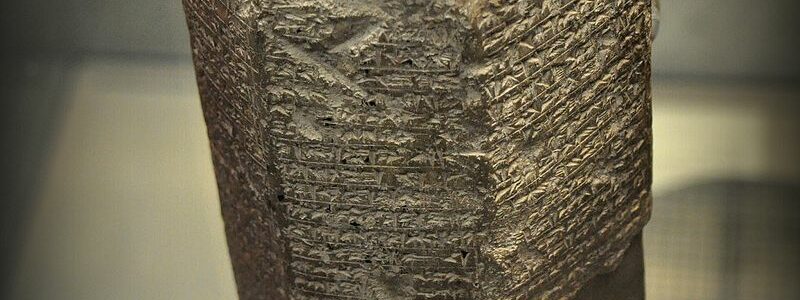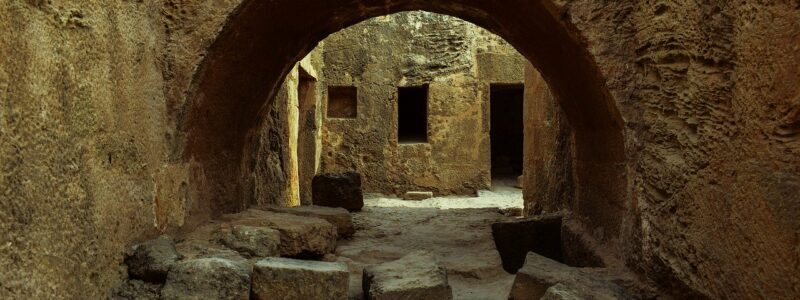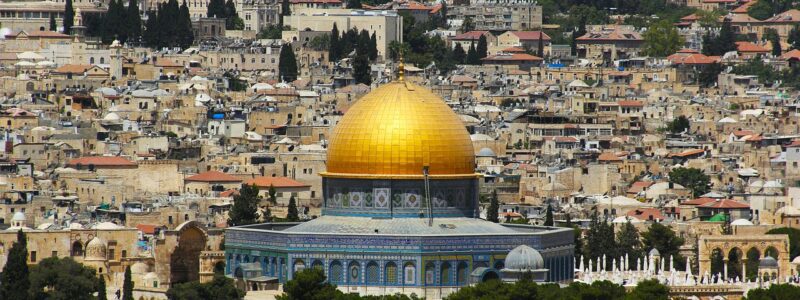Historicity of Biblical People – Judah Kings Part Two
Our prior post noted the historicity of Biblical people, such as Hezekiah. One of the most famous kings of Juday from the Old Testament is King Josiah.
History of King Josiah
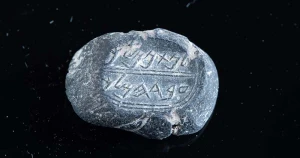
Nathan-Melech Bulla
There are no archaeological records that directly mention King Josiah. However, a seal bearing the name of Nathan-Melech has been found at an archaeological site in Jerusalem. He is known from Scripture (2 Kings 23:11) to be an administrative official to Josiah.
Most scholars believe in the historicity of King Josiah. They attribute the absence of documents or artifacts mentioning him to a few documents surviving from this period. Jerusalem has been occupied, conquered, and destroyed several times throughout history.
Family of King Josiah
The history of Judahite kings during this period is complicated, as there were many in a short period. Josiah was the grandson of Manasseh, who started as an idolatrous king who cut the prophet Isaiah in two with a wooden saw for opposing his practices. One of his sons Mattanyahu (later named Zedekiah) would be the last king of Judah. He was captured by the Babylonians, forced to watch his sons be killed, then blinded and removed to Babylon, never heard from again.
Religious Reform
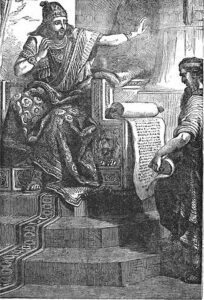
King Josiah
Josiah became king at eight and “began to seek the God of his father, David.” In the twelfth year of his reign, he began a program to remove altars of Baal throughout Jerusalem and Judah. The temple in Jerusalem is restored starting in the eighteenth year of his reign.
While the High Priest Hilkiah was cleaning out the treasure room of the Temple, he discovered a scroll described as “the book of the Law.” Hilkiah brought the scroll to Josiah, who consulted the prophetess Huldah. She assured Josiah that the non-observance of instructions in the “book of the law” would bring destruction. However, this destruction would not come during Josiah’s reign because “thine heart was tender and thou didst humble thyself before the Lord.”
Upon hearing these instructions, Josiah changed his form of leadership and entered into a new covenant with God. He wiped out the Ball worship in his kingdom and forbade the worship of Gods other than Yahweh.
Josiah’s Downfall
In 609 BC, Pharoah Necho II led an army up to the Assyrian Empire to fight the Medes and the Babylonian Empire. Along this route, he came to the valley of Jezreel in Israel and was met by the army of Josiah. The reason why Josiah attempted to halt the Egyptian army is not known. According to the Biblical book Chronicles, Necho did not intend to do battle with the Judeans and was confused by Josiah’s attack. Necho wrote Josiah a letter saying, “What have we done to each other, king of Judah? I am not coming against you this day.”
A fierce battle was fought against Necho, resulting in Josiah’s death. According to Chronicles (2 Chronicles 35:20) notes that Josiah was fatally wounded by Egyptian archers and he was brought back to Jerusalem to die.
